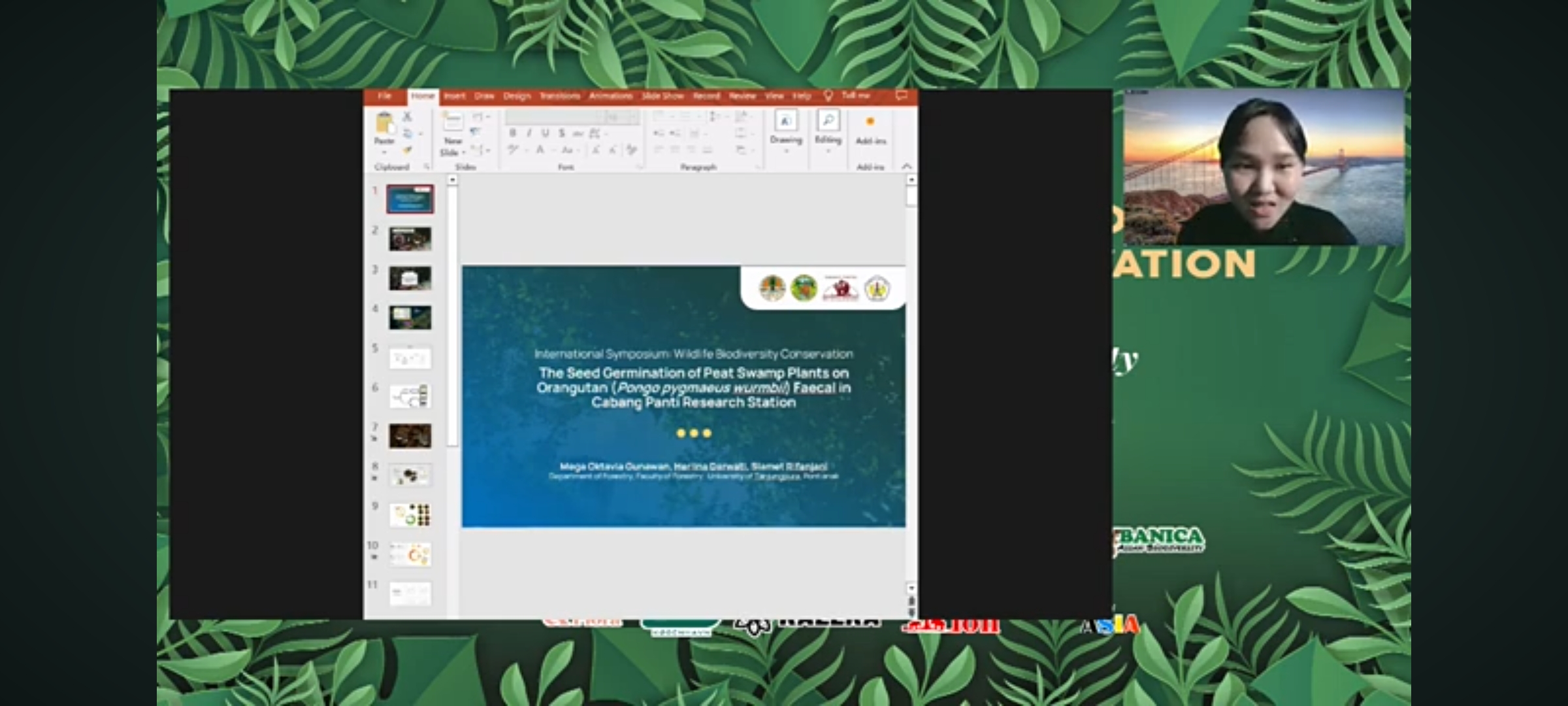Mega Oktavia Gunawan had a dream many years ago of reintroducing orangutans after reading children's books about the endangered species. She kept that dream in mind as she progressed from elementary through high school. In 2023, she successfully graduated from the Faculty of Forestry at Tanjungpura University, thanks to the strong financial support she received as a "safety net" for her dream. The West Borneo Orangutan Caring Scholarship (WBOCS) program, a collaboration between Yayasan Palung and the Orang Utan Republik Foundation (OURF), provided her with the opportunity for higher education. Mega, hailing from Ketapang and North Kayong, was entrusted with continuing orangutan and environmental conservation efforts.
This educational opportunity exposed Mega to various perspectives on environmental conservation, which broadened her understanding and sparked her interest in a range of specialized topics. Eventually, she chose to focus on the study of peat swamp plants, an issue of global concern. Her research centered on analyzing the germination rate of plant seeds dispersed through orangutan feces, particularly focusing on overlooked species native to peat swamp habitats. Mega conducted her study using a time-to-event method for 4.5 months at the Cabang Panti Research Station in Gunung Palung National Park. She believed that her research would provide valuable insights into the seed survival of species that orangutans disperse from parent trees to new locations.

a germinating seedling in the peat swamp forest
During her study, Mega made an interesting discovery. Out of the seven species she examined, four were successfully dispersed through orangutan feces across different habitats, and some of them even germinated successfully. Among the species studied, Mega specifically highlighted the significance of Tetramerista glabra and Microcos antidesmifolia. Tetramerista glabra had experienced a decline in population due to its extensive use as construction material, hindering its slow regeneration. On the other hand, M. antidesmifolia was a poorly known plant native to freshwater swamp habitats, as indicated by the journal references. The successful germination of these native freshwater swamp plants in the peat swamp habitat, surpassing manually extracted seeds and whole fruit treatments, brought positive news. It provided novel insights that were not previously documented in the journal and showcased the potential of these species to enhance the biodiversity of peat swamp habitats.

Mega presents her research in an online seminar
To disseminate her findings, Mega presented her research at the International Symposium of Wildlife Biodiversity Conservation, which took place at Gajah Mada University from September 4-6, 2023. The symposium attracted more than 150 participants from around the world. While further study is required to validate the accuracy of the results over an extended period, especially considering the conservation potential of often overlooked plant species, Mega considered her research a significant milestone. The academic challenges she faced were both rewarding and demanding, and the support she received played a crucial role in helping her achieve this milestone. This experience inspired Mega to continue developing her skills in science communication, using visual and written forms to present her field findings and attract more collaborators.
Mega wholeheartedly expressed her profound gratitude for the transformative support she has received. She holds immense appreciation for the unwavering dedication of the generous donors who actively contribute to the advancement of competent young researchers in Indonesia through conservation education, aligning with the Sustainable Development Goals (SDGs). Mega fervently hopes that this exceptional program will persist in shaping a future where equitable education is readily accessible to children throughout the country, empowering them to safeguard Indonesia's diverse and precious biodiversity.
In their commitment to nurturing talented individuals like Mega, the Support-a-Student Scholarship program, sponsored by OURF, remains steadfast in its mission to provide continued funding for promising scholars, ensuring the emergence of a new wave of bright minds in the years to come.
